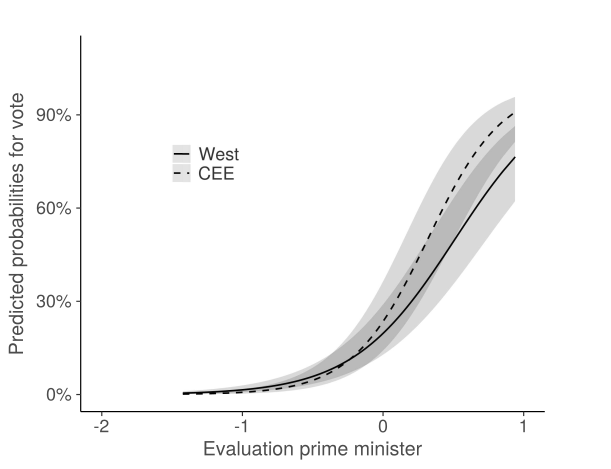Are prime ministers in Central Eastern Europe (CEE) weaker than prime ministers in Western Europe (WE)? The notion that prime ministers in CEE are weaker and less ‘presidential’ is widely accepted. I challenge this position by comparing the personal influence of prime ministers on individual vote choice in parliamentary elections. I argue that the post-communist legacy of CEE provides a more favourable context for prime ministers to develop a central characteristic of ‘presidential’ prime ministers: A strong personal influence on voting behaviour in parliamentary elections which provides prime ministers with the opportunity to gain autonomy within party and cabinet.
I combine several waves of Comparative Study of Electoral Systems (CSES) data to study the leader effect of prime ministers across European countries. I employ a multilevel model to test whether the leader effect of prime ministers varies across countries and if this variance can be attributed to a systematic difference between CEE and WE countries. My findings show that prime ministers in CEE are electorally stronger than prime ministers in Western Europe.
